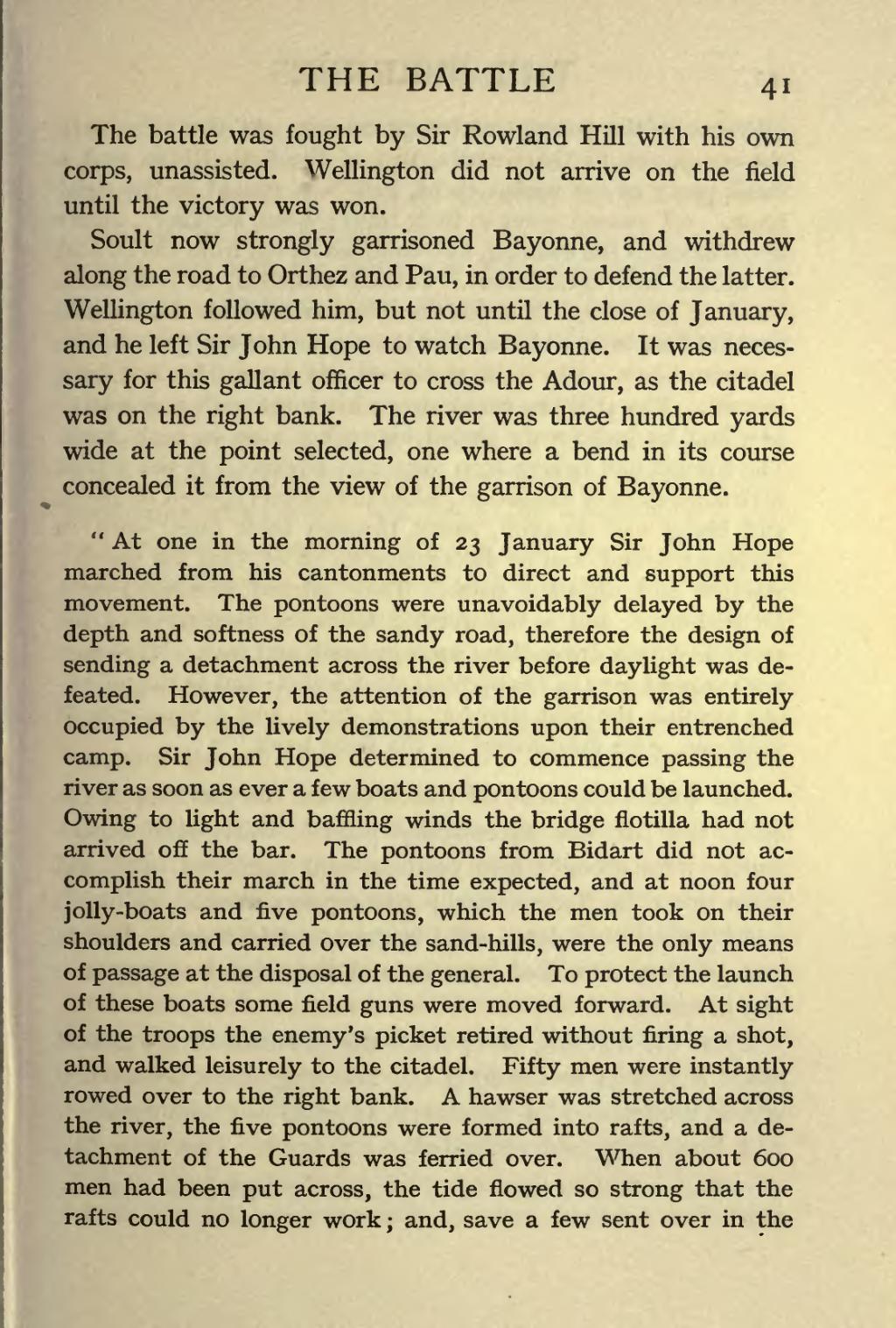The battle was fought by Sir Rowland Hill with his own corps, unassisted. Wellington did not arrive on the field until the victory was won.
Soult now strongly garrisoned Bayonne, and withdrew along the road to Orthez and Pau, in order to defend the latter. Wellington followed him, but not until the close of January, and he left Sir John Hope to watch Bayonne. It was necessary for this gallant officer to cross the Adour, as the citadel was on the right bank. The river was three hundred yards wide at the point selected, one where a bend in its course concealed it from the view of the garrison of Bayonne.
"At one in the morning of 23 January Sir John Hope marched from his cantonments to direct and support this movement. The pontoons were unavoidably delayed by the depth and softness of the sandy road, therefore the design of sending a detachment across the river before daylight was defeated. However, the attention of the garrison was entirely occupied by the lively demonstrations upon their entrenched camp. Sir John Hope determined to commence passing the river as soon as ever a few boats and pontoons could be launched. Owing to light and baffling winds the bridge flotilla had not arrived off the bar. The pontoons from Bidart did not accomplish their march in the time expected, and at noon four jolly-boats and five pontoons, which the men took on their shoulders and carried over the sand-hills, were the only means of passage at the disposal of the general. To protect the launch of these boats some field guns were moved forward. At sight of the troops the enemy's picket retired without firing a shot, and walked leisurely to the citadel. Fifty men were instantly rowed over to the right bank. A hawser was stretched across the river, the five pontoons were formed into rafts, and a detachment of the Guards was ferried over. When about 600 men had been put across, the tide flowed so strong that the rafts could no longer work; and, save a few sent over in the
